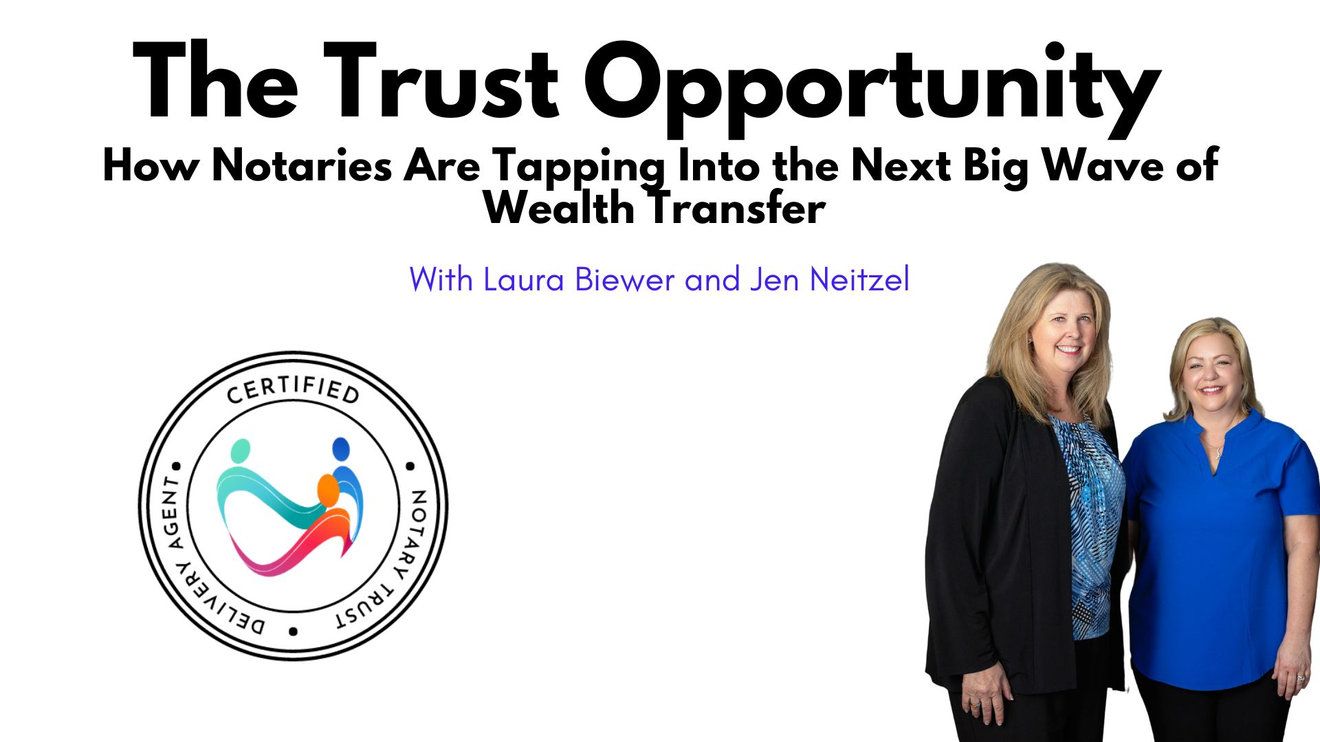Skills Pay the Bills!

It's Not Enough to Have a Commission: Why Notary Skills and Deliberate Practice Matter More Than Ever .
Being a commissioned notary is just the starting point. You've got your stamp, journal, website, or a few directory ads, but you're still not getting steady calls or repeat clients. What gives?
The truth is, it's not enough to just "be available." In today's competitive market, skills pay the bills. Your ability to assess, adapt, and deliver sets you apart—not just your name on a list.
Here's a breakdown of the real-world skills that keep clients coming back:
🔍 1. Scope of the Job Assessment
Before you grab your keys and head out, you need to ask the right questions:
-
How far is the appointment?
-
How many signers and documents are involved?
-
Will printing or scanning be required?
-
Are all signers in the same location/time?
-
How will the documents be returned?
-
Are witnesses needed?
Knowing the scope helps you prepare properly and price the job fairly—no surprises for you or your client.
Tip: Some states require you to provide a receipt and break out the notarial fees.
🧠 2. Signer Assessment Skills
You may not be speaking to the signer when you book the appointment.
Can the signer communicate to you clearly and directly? Are they aware and alert? These questions matter, especially in sensitive settings like hospitals or care homes.
My go-to questions are:
-
Who are you?
-
Where are you?
-
What document are we working with today?
-
Who else is in the room (if anyone)?
-
Do you want to sign?
Assessing capacity respectfully isn't just professional—it's essential.
✍️ 3. Notary Accommodation Skills
Not all signings are straightforward. You might encounter a signer who can't write a full signature unassisted or someone without proper ID. Knowing when and how to use a credible witness or how to perform a signature by mark or proxy gives you the confidence to handle real-life scenarios while staying compliant with the law.
(Both typically require witnesses!)
💵 4. Smart Pricing Strategies
Are you bundling your services, like in loan signings or trust delivery work? Or charging separately for travel and notarial acts?
Is your state travel-fee friendly?
If not, bundled work may be your better option.
Pricing isn't just a number—it's a message about the value you bring. Fair, strategic pricing shows clients you know your worth.
📄 5. Document Introduction Without Overstepping
Clients often ask us for help with documents.
Remember: we can point out where information goes, but they must complete it themselves. We check for completeness, not accuracy.
Introducing documents clearly—without crossing into the unauthorized practice of law—is an actual skill.
You don't need to explain legal consequences, but you do need to guide the signer with confidence and clarity.
🤝 6. Social Skills That Build Trust
Whether at a kitchen table or a hospital bedside, your energy and communication matter.
A calm, warm, and professional presence reassures clients.
People don't remember "just the notary"—they remember how the notary made them feel.
Why Deliberate Practice Matters
Getting better at these skills doesn't happen by accident but by deliberate practice.
Deliberate practice means identifying the areas where you need improvement, setting specific goals, getting feedback, and repeating the skill until it becomes second nature.
It's different from just "doing more signings"—it's about doing them intentionally, with a mastery mindset.
Example:
If you struggle with explaining documents without overstepping, don't just hope you get better.
Practice phrasing out loud, role-play with a colleague, or attend training on UPL (unauthorized practice of law) boundaries.
Focus deeply on that one skill until you own it.
The real pros in any field don't practice until they get it right—they practice until they can't get it wrong.
Bottom line?
Your commission gets you in the game—but your skills win the business.
Master these areas through deliberate practice, and you will not just get repeat clients—you will build loyal ones who will help you grow a notary business that's not just busy but sustainable.
Because in this business, your skills keep them coming back.
And don't forget: other skills maintain and scale your business too—like bookkeeping, writing, speaking, marketing, and money allocation.
As the CEO of your company, you wear many hats.
You either need to be good at these areas—or hire well (and even then, you need to understand the basics).
Laura
Want more hands-on coaching and support?
Join us every Saturday at 8 AM PST inside Laura's Inner Circle.
Sign up at www.coachmelaura.com and start leveling up your business skills today!



